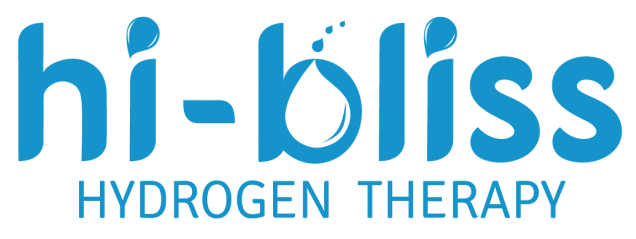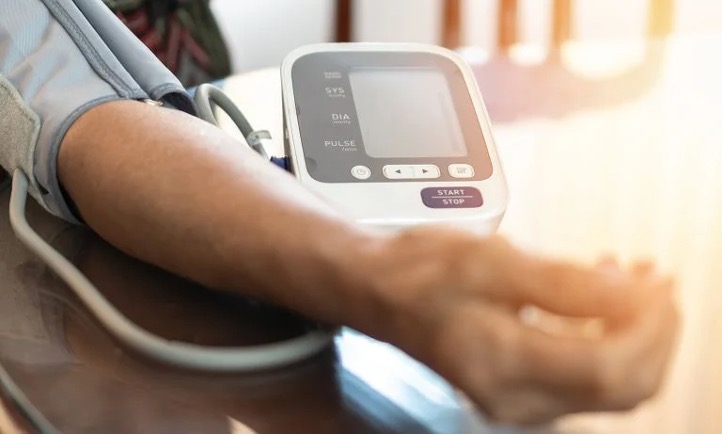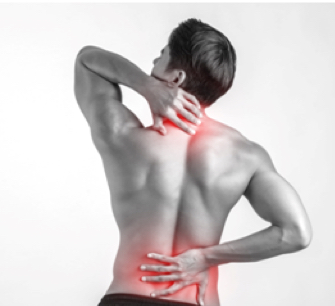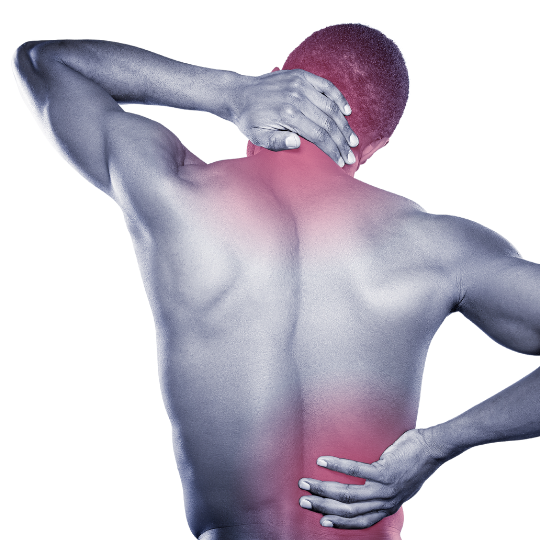Ever wondered why the first thing that your doctor does every time you visit a doctor’s office or hospital, (regardless of the complaint that brought you there) is to take your blood pressure? There’s a reason why your blood pressure is taken. every single time.
Hypertension (HPT), or also known as High Blood Pressure (HBP), is a long-term medical condition in which the blood pressure in the arteries is persistently elevated and is a common condition in most countries, including Malaysia. High blood pressure is rightly known as “the silent killer” because it doesn't always have outward symptoms, meaning that you could have it for years and not know. It often carries no symptoms or warning signs but over time, uncontrolled high blood pressure can drastically become a primary risk factor for cardiovascular disease, including stroke, heart attack, heart failure, and aneurysm. According to a Harvard study, having hypertension can increase your risk of stroke by 220%. The older you are, the more likely you are to get it. Keeping blood pressure under control is vital for preserving health and reducing the risk of these dangerous conditions.
Blood pressure is the force of blood pressing against the walls of your arteries. In simplistic terms, blood pressure is a measurement of the force with which your blood is pumped round your body. It is the pressure that your pumping blood places on the walls of your arteries, the blood vessels that carry blood away from your heart. When it's too high, your heart has to work harder. This can cause serious damage to your arteries. The higher the number, the harder your heart is having to work to pump blood around your body and the more likely it is that damage is being done to the heart muscle. Since all parts of your body rely on circulation, though, it’s not just your heart that high blood pressure can impact. If blood doesn’t flow easily, it can harm your arteries as well as vital organs such as the kidneys, eyes, and brain.
High blood pressure (or “hypertension”) has been shown to damage the tiny blood vessels in the parts of your brain responsible for cognition and memory, greatly increasing your risk of developing Alzheimer’s disease or another dementia. Being diagnosed with cardiovascular disease can also take an emotional toll, affecting your outlook and making you more susceptible to anxiety and depression. And just as blood pressure may have an impact your mood, the reverse can also be true:

Your exact blood pressure is measured by reference to two different factors. The first of these factors is the strength of each heartbeat, whilst the second is the resistance put up by the ‘tubes’ through which you blood passes, primarily your capillaries and arteries.
It is the arterioles, the tiny blood vessels that feed into the capillary network that regulate blood pressure more than any other part of your body. These arterioles expand and contract in rhythm with the beating of your heart as result of the muscular tissue in their walls. Hence, measuring blood pressure is in effect checking the strength or weakness of your heart.
Your blood pressure is measured by reference to two different numbers which represent the systolic and diastolic pressures.
- The higher number, or systolic blood pressure is a measurement of the highest pressure point which is recorded when the heart beats or contracts (is measured as your heart pumps blood into your arteries).
- The lower figure, the diastolic is a measurement of what is happening when your heart is at rest (relaxes between beats), effectively representing the low point of your blood pressure.
Generally, it is the diastolic pressure measurement which medical professionals pay most attention to, because if your diastolic pressure is too high, it suggests that your arteries and capillaries are under too much pressure even when your heart is at rest.
You have stage 1 high blood pressure if your systolic reading is between 130 and 139 or your diastolic is between 80 and 89. A reading of 140 or higher systolic or 90 or greater diastolic is stage 2 hypertension. You may not have symptoms. If your systolic is over 180 or your diastolic is above over 120, you may be having a hypertensive crisis, which can lead to a stroke, heart attack, or kidney damage. Rest for a few minutes and take your blood pressure again. If it's still that high, call 999. Symptoms include a severe headache, anxiety, and nosebleeds. You might feel short of breath or passing out.
Low blood pressure (known as “hypotension”) is a much less common problem than hypertension, but it can still significantly impact blood flow to the brain and increase your risk of shock, stroke, heart attack, and kidney failure.
What are the symptoms?
One of the biggest problems for people who suffer high blood pressure is that a very significant percentage of them have no symptoms that might otherwise give them a clue that everything is not well. Some people do of course suffer symptoms that might give them an idea that they have a blood pressure problem. Given that high blood pressure naturally means that the pressure of blood being pumped around the body is too high, there are some conditions that might suggest a high blood pressure problem.
- Persistent unexplained nosebleeds as the weaker blood vessels in their nose inexplicably rupture
- Dizzy spells on a persistent basis
- Unexplained headaches
- Blurred vision
- Nausea
- Fatigue or Confusion
- Chest Pain
- Difficulty Breathing
- Irregular Heartbeat
- Pounding in your neck, chest or ears
- Blood in the Urine
What causes hypertension or high blood pressure?
There’s no single cause of high blood pressure, but rather many contributing factors. Some are out of your control, such as age, race, gender, and family history - blood pressure tends to increase over the age of 70, affects more women than men over the age of 55, and is more common in African Americans than Caucasians, perhaps due to a genetic sensitivity to salt.
However, numerous other risk factors for hypertension are within your control, and it is a combination of these factors that most commonly causes high blood pressure. These factors include:
- Being seriously overweight or obese. It stands to reason that the greater your body mass is, the harder your heart is going to have to work to pump blood around it. Consequently, there is an increase in pressure on the arterial walls as more blood is produced to supply the necessary oxygen and nutrients throughout your bigger than normal body mass.
- Stress can be a big contributory factor as far as high blood pressure is concerned.
- Activity levels can also be a contributory factor. If you are relatively inactive or do not take any exercise, it tends to increase your heart rate, meaning that your heart works harder to pump blood around the body. And of course, it follows that if you are completely sedentary and do not take exercise, this is likely to exacerbate your weight problems as well.
- Family history or genetics. If you have a family history of high blood pressure, it is quite likely that you will have a similar problem.
- Tobacco use. Certain chemicals in cigarettes and tobacco itself can cause damage to blood vessel walls, thereby increasing the work that your heart has to do to pump blood around your body.
- Sodium intake. Excessive sodium intake can result in increased fluid retention, which in turn leads to increased blood pressure.
- Potassium intake. Taking on board excessively low levels of potassium can result in elevated levels of sodium in body cells because potassium and sodium seek a natural balance in those cells.
- Excessive alcohol consumption can increase the risk of heart problems, particularly if this excessive consumption is continued for a significant period of time.
- Sleep apnea – brief periods when you stop breathing whilst asleep – is also considered to be a contributory factor to having high blood pressure and is something that overweight people are particularly susceptible to.
There are also specific substances that can raise your blood pressure, such as:
- Caffeine, including coffee, tea, soda, and energy drinks.
- Nonsteroidal anti-inflammatory drugs (NSAIDs), such as aspirin and ibuprofen (Motrin, Advil).
- Cough and cold medications containing decongestant or NSAIDs.
- Prescription medications, including some of those used to treat ADHD, birth control pills, corticosteroids, atypical antipsychotics, MAOIs and SNRIs used to treat depression, and some cancer drugs.
- Recreational drugs, such as cocaine and methamphetamine.
We shall learn more on the damages Hypertension (High Blood Pressure) cause plus more about how to lower your High Blood Pressure naturally in the next blog.
Learn more how Hi-Bliss Hydrogen Therapy and Hydrogen Water can help lower the Blood Pressure here: https://wordpress-851564-2937612.cloudwaysapps.com/treatment-services-detox-wellness/
References:-
- Molecular and Cellular Mechanisms Associated with Effects of Molecular Hydrogen in Cardiovascular and Central Nervous Systems ~ Miroslav Barancik, Branislav Kura, Tyler W. LeBaron et al. Antioxidants 2020, 9, 1281 DOI:10.3390/antiox9121281 | www.mdpi.com/journal/antioxidants
- Molecular Hydrogen Improves Obesity and Diabetes by Inducing Hepatic FGF21 and Stimulating Energy Metabolism in db/db Mice ~ Naomi Kamimura, Kiyomi Nishimaki, Ikuroh Ohsawa and Shigeo Ohta. VOLUME 19 NUMBER 7 | July 2011 | www.obesityjournal.org. DOI: 10.1038/oby.2011.6
- Hydrogen Therapy in Cardiovascular and Metabolic Diseases ~ Yaxing Zhanga Sihua Tana et.al. Cell Physiol Biochem 2018;47:1-10. DOI: 10.1159/00048973



